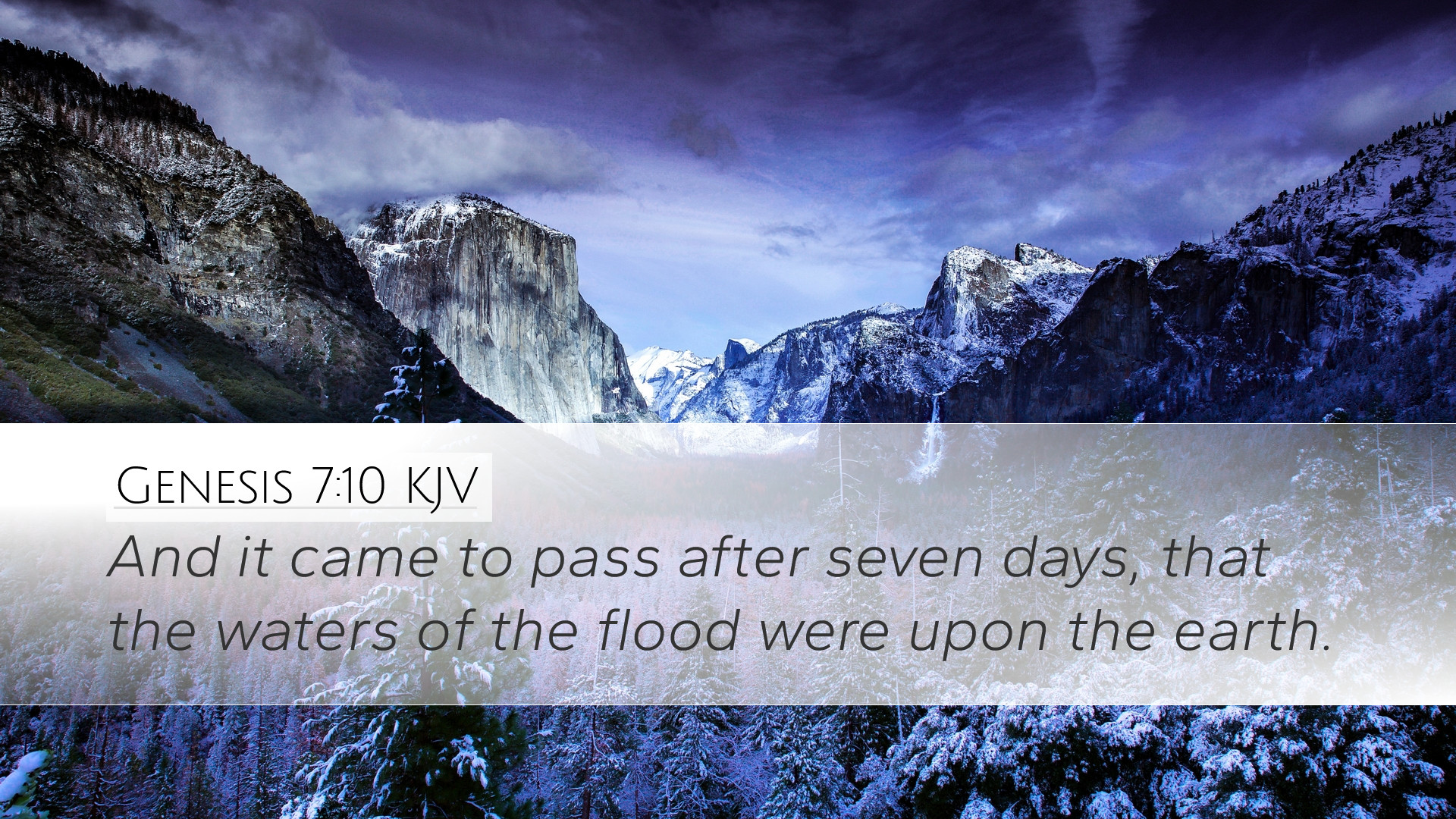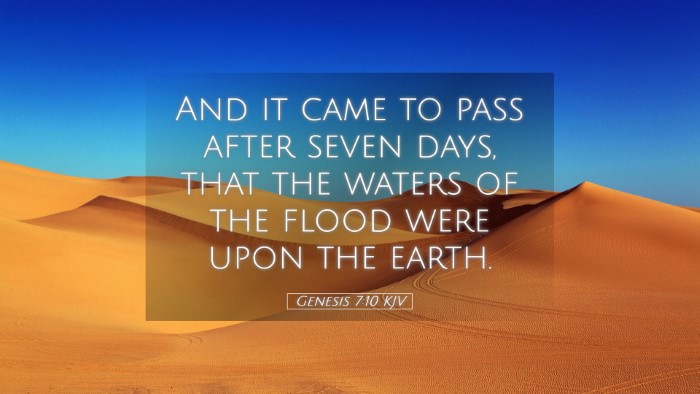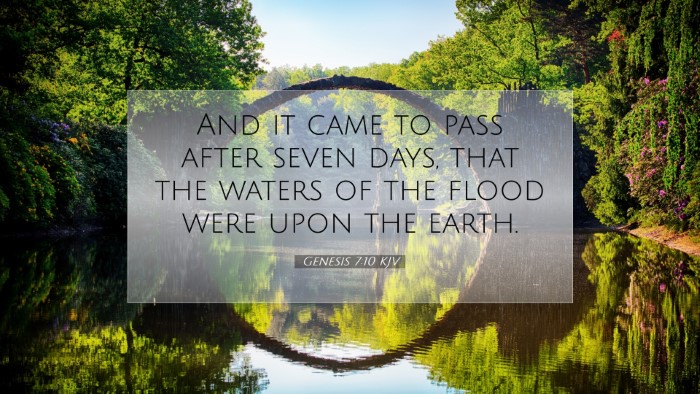Commentary on Genesis 7:10
Genesis 7:10 states, "And it came to pass after seven days, that the waters of the flood were upon the earth." This pivotal verse marks the onset of the deluge, a significant event in biblical history and theology, acting as a crucial point in the narrative of Noah and the covenant between God and humanity.
Historical Context
In the context of Genesis, chapter 7 recounts God's instructions to Noah regarding the impending flood—a judgment upon the earth due to humanity's wickedness. The antecedent chapters build the narrative that presents Noah as a righteous man who found favor in God's eyes (Genesis 6:8). The reference to the flood serves not only as a historical event but also as a theological motif representing divine judgment and salvation.
Theological Insights
The declaration of the flood's commencement reminds readers of the duality of God's nature: His justice and His mercy. While judgment is pronounced, salvation is provided through the ark, symbolizing Christ in Christian theology. The flood serves as a precursor to understanding redemption and covenant, central themes throughout the scripture.
Divine Sovereignty
According to Matthew Henry, this verse illustrates the sovereignty of God in administering His creation. God's determination to send the flood is coupled with His command to Noah, demonstrating that human judgment does not escape divine oversight. The precision of God's timing; "after seven days" signifies His ultimate control over both the natural order and the unfolding of redemptive history.
Preparation and Obedience
Albert Barnes emphasizes the critical nature of the seven-day period, highlighting the preparation phase. Seven days, symbolic of completeness and divine intention, reflect Noah's obedient faith as he fulfills God's command while warning others. This highlights a theological insight into the necessity of obedience and faith in the believer's life. Noah’s obedience underscores a call to spiritual readiness in anticipation of God’s actions, both in judgment and grace.
The Flood as a Judgment
Adam Clarke provides insights into the seriousness of the judgment through the flood, emphasizing it was a necessary act to cleanse the earth of its corruption. The waters represent the washing away of sin, indicative of a new beginning for humanity. Clarke notes that the flood is a sobering reminder of the seriousness of sin and God's intolerance towards evil which remains a theme throughout Scripture.
Application for Today
For pastors and theologians, Genesis 7:10 serves as a reminder of the importance of vigilance in spiritual life. Just as the antediluvian world faced destruction due to sin, contemporary society grapples with similar challenges. The emphasis on Noah’s faith and obedience calls believers towards righteousness in a world filled with moral decay.
- Preparedness: The story encourages believers to be prepared for the judgments that come with sin and to heed God's warnings.
- Belief and Action: A faithful response involves both belief in God's promises and action in obedience, akin to Noah’s construction of the ark.
- Concept of Covenant: The impending flood eventually leads to God’s covenant with Noah (Genesis 9), highlighting promises that continue through scripture.
Conclusion
Genesis 7:10 chronicles a critical turning point in biblical history emphasizing divine judgment, the importance of obedience, and God's unwavering sovereign control over His creation. By synthesizing insights from noted public domain commentaries, we see the narrative lessons that speak even today, urging believers towards faith-filled action in anticipation of God's movements—a call to not only discern but also to act in faith as contained within the reassuring bounds of God’s providence.


